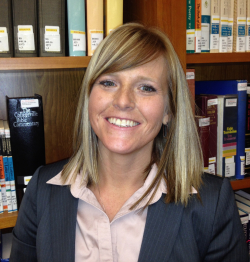
No Longer Experts: Teaching in Politically Unstable Times (Part 2)
The blizzard of the world
has crossed the threshold
and it has overturned
the order of the soul.
-Leonard Cohen[1]
I still remember vividly the fear and frenzy swirling around my graduate school the days and weeks after September 11, 2001. As the blizzard of physical and spiritual violence and their inevitable outcome of war blew around campus, classes went on. Sitting in a classroom for two hours at a time and listening to lectures on systematic theology seemed--to me, at least--pointless. I can remember only two of my professors mentioning in class the terrorist attacks and their aftermath. One professor stormed into the classroom the morning of September 12, in a fury, declaring: “We need to bomb ‘em!” He then uttered something about holy wrath. When the US eventually did bomb Afghanistan on October 7, another one of my professors openly wept in class. She was concerned, as was I, about the number of innocent lives that would be lost in the ensuing war. In a move deemed controversial around the Theology Department, she hung a poster on her office door entitled “Death Toll,” which she updated daily to reflect the current count.
It was to her office hours I went when I was trying to find my way through the storm of confusing thoughts and emotions. So many people around me were indifferent to the suffering of others. So many seemed to be separated from their souls. “What’s the point of going to class anymore?” I remember asking her. I had been thinking that my time would be better spent dropping out of school and becoming an activist. Actually, I had a similar crisis of conscience during my undergraduate studies, I told her when I almost quit school for what seemed like a nobler cause.
Now a professor myself, when I reflect back on these difficult moments during my student years, I can identify what annoyed me so much about so many of my theology classes: they were irrelevant and disengaged from the serious events surrounding us; their aim was to transfer content. No one seemed to care, except for the one professor from whom I sought guidance, about teaching us to apply the knowledge we learned to the context around us.
That education entails not just knowledge, but also attitudes, skills, and practices may seem to be a universal pedagogical value. But, if it is, it is not universally carried out. For example, in the Catholic neck of the woods in which I teach, formation is understood to entail four pillars: intellectual, spiritual, pastoral, and human. Seminarians, permanent diaconate candidates, and lay students preparing for ministry are to be formed across these pillars in order to emerge from graduate theological programs as integrated, healthy ministers in their churches and communities. So often though, these pillars operate as mutually exclusive silos. In many programs, I have seen, for instance, theology professors are responsible for intellectual formation, while field educators and priests are in charge of the other three pillars. Sometimes little to no conversation happens across those responsible for each pillar. The student moving through such a program is the sole agent of integration between the four pillars. As I know from my student days, this doesn’t work very well. The soul feels separated from the intellect and the conscience, and the feeling of disintegration is heightened, and becomes too much to bear, when living in times of war, amidst racial and economic injustice, ecological ruin, political deceit, and greed, etc.
The importance of integration and integrity have been made clear enough in the current US presidency. To take just one example: consider the foolishness of the POTUS (President of the United States) delivering a speech on the responsibility of Twitter to millennials during his visit to Saudi Arabia. When our world leaders act in such a way, demonstrating a separation between intellect and soul, or a wholescale overturning of “the order of the soul,” to use Cohen’s words again, we need to help the students in our classrooms make their way through “the blizzard of the world,” lest they be lost, too, in the madness.
Course syllabi and outlines need to be revised. Term assignments need to be rethought. Discussions in class need to be redirected. All of this needs to happen so that we give students the time and space in our classes to learn how to apply knowledge to context and practice. In a brainstorming session of my “Classics of Christian Spirituality” course I taught last semester, I was edified deeply when one of my students had the idea to apply the Spiritual Exercises of Ignatius of Loyola that we had read for class that day to a community night of reflection for peace and discernment during politically turbulent times. I have also learned that students need the chance to receive feedback on their efforts because it is far more difficult to apply the information they learn in class than it is to memorize it and regurgitate it back to a teacher on a test or in paper. Giving them opportunities to act across the four pillars, or simply place their knowledge in the service of praxis, is critical for their formation as engaged citizens in church and society.
If we are concerned about the declining registration rates in theological and religious education programs in North America, we might need to step up our game in terms of formation. If it weren’t for the teacher I had in the Fall of 2001 who kept things real and relevant for me, I doubt I would have registered for any more classes either.
[1] Leonard Cohen, “The Future” © 1992 by Sony Music Entertainment, Inc.
Leave a Reply